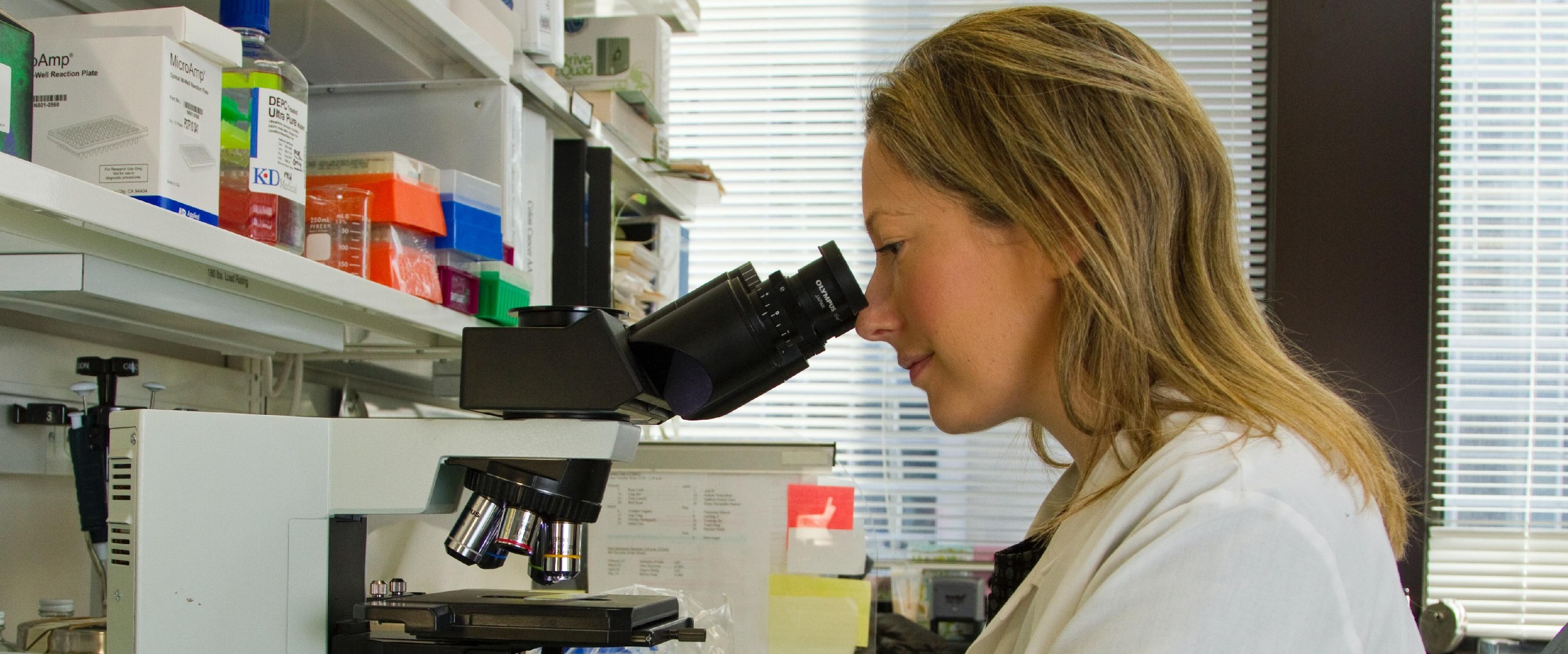Throughout the course of a medical diagnosis, members of your health care team will order different laboratory blood tests. Many times, these laboratory blood tests will be repeated throughout the diagnosis, treatment, follow-up, and continuing care. Each medical diagnosis and treatment has specific factors that are required to be monitored. When it comes to the results of these tests and what counts are normal or not, it is important to know that “normal” ranges simply reflect average values in a population. It is common for some tests to be slightly outside of the “normal range” (low or high) without consequence and your clinicians can guide you with respect to their relevance.
Common or routine laboratory blood tests may include complete blood counts (CBCs), blood chemistries, and in case of cancer detection, tumour marker tests.
Complete Blood Count (CBC)
Complete blood counts (CBC) are used to measure the quality and number of blood cells and is one of the most common laboratory blood tests. A CBC is a routine group of tests ordered by health care practitioners to evaluate overall health and screen for diseases or conditions. A CBC is also used as a baseline test to compare blood counts before, during, and after treatments. The CBC includes white blood cells (WBCs), red blood cells (RBCs), and platelets. Blood counts can decrease due to illness or side effects of cancer treatments, and minimal thresholds are often required for treatments to proceed.
White Blood Cells (WBCs)
WBCs, also called leukocytes, are key in protecting and fighting against infections and constitute the soldiers of the immune response. WBCs are located in the blood and lymphatic tissue and are created in the bone marrow. There are five different WBCs with specific functions: neutrophils (important in fighting bacterial infections), lymphocytes, basophils, eosinophils, and monocytes. A low WBC count can increase the risk of developing an infection and a high WBC count can be an indication of an infection, though it is also expected to rise when patients use “growth factors” to stimulate them.
Red Blood Cells (RBCs)
RBCs, also called erythrocytes, are created in the bone marrow like the WBC. The RBCs function is to carry oxygen throughout the body. The RBCs contain hemoglobin (Hb) which is an iron-rich protein and is responsible for the red colour of blood cells – this is the measurement most often used by clinicians. Hematocrit (Hct), another way to measure RBCs, is the volume of RBCs in the total volume of blood. A low RBC or high RBC count can be indicative of a medical condition.
Platelets
Platelets are also called thrombocytes and are created in the bone marrow like RBCs and WBCs. Platelets are blood cells that are responsible for helping the blood to clot during bleeding or an injury. Platelets work to collect at the site of injury, combine with other platelets and release chemical components which stimulate clotting. The platelet count is commonly ordered to check the number of platelets in the blood when there is prolonged bleeding from a small injury or due to unexplained bruising. The platelet count is used to diagnose conditions that would initiate problems with blood clot formation.
☑ Gives details about general health
☑ Determines how the bone marrow is functioning
☑ Used in diagnosing conditions related to blood cells such as anemia
☑ Creates baseline values
☑ Used to monitor conditions after treatment and to determine if the next cycle of treatment may proceed
Blood Chemistry Tests
Blood chemistry tests are a group of blood tests which a health practitioner may order under a routine check for general health status or depending on symptoms. Blood chemistry tests are used to measure the chemical composition in the blood. The results of blood chemistry tests describe how several organs are functioning and help spot abnormalities before and after treatments. Many different blood chemistry tests can be ordered, including:
Blood Urea Nitrogen (BUN) and Creatinine
These tests are ordered to measure the function of the kidneys.7 The BUN test measures the quantity of urea nitrogen in the blood and the creatinine test is used to determine how well the kidneys are filtering waste from the blood. The BUN and creatinine are checked before therapy is initiated as a baseline and are checked again during and after treatments.
Alanine Aminotransferase (ALT) and Aspartate Transaminase (AST)
Both ALT and AST are enzymes that are ordered to measure liver function7. ALT and AST enzymes are released into the blood when the liver function is damaged. The increased levels of ALT and AST enzymes may be an indication that cancer has spread to the liver, or of other liver problems including infections, inflammation or side effects of therapy. Since they track the same processes, often only the ALT is ordered.
Alkaline Phosphatase (ALP)
ALP is ordered to measure liver function or bone conditions. ALP is an enzyme found in the liver, bones, kidneys, and digestive system that is used to break down proteins. The increased levels of ALP enzymes in the blood may be an indication that cancer may have spread to the liver or bone.
The health care practitioner may order other blood chemistry tests relevant to your medical condition. Blood chemistry tests may be ordered individually or included in larger panels, some tests that are routinely ordered may include:
Electrolyte Panel
An electrolyte panel is ordered to measure sodium, potassium, chloride, and bicarbonate levels. These tests are ordered as a routine blood screening panel or used for the detection of electrolyte imbalance and/or conditions involving problems with body fluids.
Kidney Function Test
A kidney function test, also known as a renal panel, consists of measuring blood urea nitrogen (BUN), creatinine, albumin, and the estimated Glomerular Filtration Rate (eGFR). Kidney function tests are used for the detection of kidney function and kidney disease.
Liver Function Test
Also known as hepatic function panel, a liver function test is ordered to measure alanine aminotransferase (ALT), alkaline phosphatase (ALP), aspartate transaminase (AST), lactate dehydrogenase (LDH), bilirubin, albumin, and total protein. These tests are ordered for evaluating liver function, the screening, detection, evaluation, and monitoring of acute, chronic liver inflammation and liver disease.
Basic Metabolic Panel (BMP)
The BMP is a combination of panels which include the electrolyte panel, kidney function test, glucose, and calcium. This panel is used to monitor electrolyte and fluid balance, kidney function, and blood glucose level all of which influence the body’s metabolism.
Lipid Panel
The lipid panel consists of total cholesterol, high-density lipoprotein (HDL), low-density lipoprotein (LDL), and triglycerides. These tests are used for determining cardiac heart health and cardiovascular disease risk.
Thyroid Function Panel
The thyroid function panel consists of thyroid-stimulating hormone (TSH), thyroxine (free T4), and triiodothyronine (free T3 or total T3). These tests are used for evaluating and diagnosing thyroid gland functions and thyroid disorders.
☑ General health update
☑ Determine how well the liver and kidneys are functioning
☑ Monitor electrolyte balance
☑ Used in diagnosing medical conditions
☑ To create a baseline health record
☑ To determine the effectiveness of treatments
☑ To monitor medical conditions
Tumour Markers
Tumour markers are also known as blood marker tests and sometimes called biomarkers. Tumour markers are present in the blood, urine, or some tissues in low levels. When a tumour is detected, these tumour markers increase in the body. Your healthy cells also respond to the tumour and create tumour markers, increasing the volume of the tumour markers in the body.12 There are specific tumour markers for each type of cancer, however, they are not used for screening for cancer and may not be elevated or useful for many patients. They are mostly useful in monitoring disease progression by comparing values with baseline ones. Tumour markers used in advanced or metastatic breast cancer may include:
Cancer Antigen 125 (CA125)
This antigen indicates ovarian cancer and ovarian cancer recurrence, as well as breast cancer recurrence. It can be elevated in benign ovarian conditions and at certain times of a menstrual cycle.
Cancer Antigen 15-3 (CA15-3)
This antigen measures breast cancer and is made by breast cancer cells. In metastatic breast cancer, the CA15-3 antigens are increased. The CA15-3 antigen levels will not increase in all types of breast cancers.
Carcinoembryonic Antigen (CEA)
This antigen is measurable in very low levels for most adults. The CEA level increases in the presence of certain cancer types and non-cancerous conditions. CEA can be used in breast if breast cancer has metastasized. However, CEA is more commonly elevated in colorectal cancers.
☑ Screening in individuals with a strong family history of cancer
☑ To help diagnose cancer
☑ Used for staging and assessment for metastasis
☑ Used in prognosis to determine the aggressiveness of the cancer
☑ To determine treatment options and assess treatment response
☑ Used to determine recurrence
This information is meant to help you understand why your health practitioner may order repeated tests and what the laboratory blood tests are for. It is not meant to help diagnose or influence your health care team’s decision on treatments or plans. Many other factors are used in the diagnosis and treatment of breast cancer. Laboratory blood tests are an additional step, used to monitor your overall health status and to monitor the effectiveness of treatments. Every person will have a personal and unique experience going through their medical diagnosis; no one method or approach may be relevant to all people experiencing breast cancer.
Photo by National Cancer Institute on Unsplash







